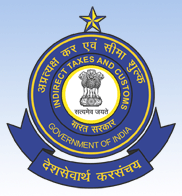|
INFORM US
While most manufacturers as well as importers/ exporters pay
Customs and Central Excise duties correctly, there are quite a few
persons/ organizations who indulge in evasion of Customs and Central
Excise duties. The department is well aware of the modus operandi in
this regard and many of such hard core smugglers/ white-collar
criminals have infact been detained under COFEPOSA (Conservation of
Foreign Exchange & Prevention of Smuggling Activities Act).
Government of India has a system of granting rewards to
Government Servants and informers who provide specific information
leading to seizure of goods, currency, bullion or leading to
detection of duty evasion including wrong declaration of quantity,
description, value etc. Reward is also granted to informers for
providing specific information leading to seizure of Narcotic Drugs
as well as Arms & Ammunitions and Explosives and Foreign Exchange.
The maximum amount of reward to informers can be as high as 20% of
the value of the confiscated goods and penalty realized. The maximum
reward in case of Gold is Rs.50,000/- per Kg., for Silver Rs.1,000/-
per Kg., for Opium Rs.220/- per Kg., for Heroin it is Rs.20,000/-
per Kg., for Cocaine Rs.40,000/- per Kg. and for Hashish it is
Rs.400/- per Kg.
YOUR NAME AND IDENTITY WILL BE KEPT ABSOLUTELY CONFIDENTIAL. NOT
ONLY CAN THE INFORMER GET HANDSOME REWARD, THIS MONEY IS ALSO
EXEMPTED FROM INCOME TAX.
1) What is an information?
An information is any useful message received from the public or
any person for that matter revealing fraudulent evasion of duty. It
is the message based on which the department officials conduct
further enquiry and investigation.
2) Who can give information?
Any person who is aware of the illegal activities of the
manufacturing units or any Central Excise assessee can give an
information.
3) Who is an informer?
Any person other than the Officers of the Central Excise who has
the requisite information relating to evasion of duty is an
informer.
4) Whom should an informer contact?
An informer with an information can contact Central Excise
department and deliver the information to any Officer of the rank of
Inspector and above.
5) How to give an information?
An information has to be given in writing addressed to the Head
of the department, after affixing the signature of the person giving
the information along with the left-hand thumb impression.
6) What should an information contain?
An information should contain details of the evasion known, such
as name & address of the unit, method adopted for the evasion, the
persons responsible and all other relevant details connected with
the evasion.
7) What are the common methods of evasion adopted
with regard to Central Excise?
a) Misdeclaration / under-valuation of the product: Manufacture
of the products without the informing the Department. Selling the
same at a higher price after showing a lesser value to the
department.
b) Suppression of production: Producing the goods without
properly accounting the same in the records.
c) Clandestine removal: Removing the goods without accounting the
same and without payment of duty. Even a transporter who stores such
goods is liable for action. Vehicles with the goods, removed without
payment of Central Excise duty is also liable for action.
8) How the department receives an information?
The department acknowledges the information. The name and address
of the informer is kept confidential.
9) What benefit does an informer get?
An informer is given the reward if the information given is
correct and the duty payable by the assessee is recovered.
10) When are the rewards sanctioned?
The first two categories of rewards are advance rewards
sanctioned after issue of Show Cause Notice and Adjudication of the
case respectively, provided the competent authority to sanction
reward is satisfied that there is reasonable chance of sustenance of
the case in appellate forums. The third category is final reward it
is sanctioned after conclusion of the Appeal proceedings. The reward
is disbursed after confirming the identity of the informer, in the
presence of two witnesses.
11) What is the punishment for false information?
If any false information is given to the department, action can
be initiated against the informer under Section 182 of Indian Penal
Code.
If you have any information please contact the
following officer :
| Name |
Designation |
Contact Nos. |
| Shri Rajeev Maheshwari |
Asstt. Commissioner (Preventive) |
0755-2574752 |
|



